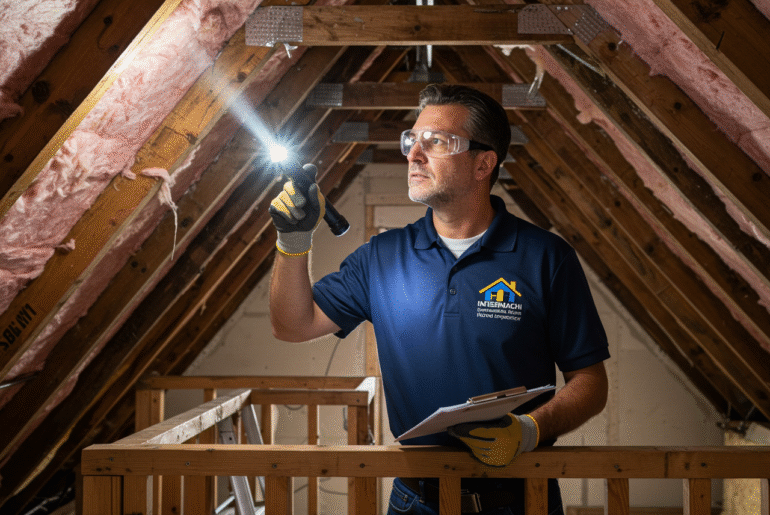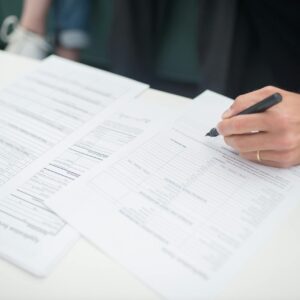This article may contain references to products or services from one or more of our advertisers or partners. We may receive compensation when you click on links to those products or services. Nonetheless, our opinions are our own.
The information presented in this article is accurate to the best of our knowledge at the time of publication. However, information is subject to change, and no guarantees are made about the continued accuracy or completeness of this content after its publication date.
- Highlights
- Introduction
- Home Inspection Costs in the US
- What Is a Home Inspection and Why Is It Important?
- National Average Home Inspection Costs
- Key Factors That Influence Home Inspection Pricing
- How to Understand Home Inspection Costs
- How to Get Your Home Inspected
- Final Thoughts
- Frequently Asked Questions
- Recommended Reads
Highlights
- A home inspection helps uncover problems before buying a house, offering peace of mind.
- Inspection cost depends on home size, property type, and location in the U.S.
- Most inspections range from $281 to $402, but prices vary by provider and added services.
- Larger or older homes typically lead to higher inspection costs.
- Extra tests (e.g., for termites or asbestos) increase the total cost.
- Professional inspectors follow strict standards and offer unbiased evaluations.
Introduction
Buying a house often comes with unexpected expenses, and a home inspection is one of them. While it may seem like just another cost, an inspection helps prevent costly surprises later. Understanding what affects inspection pricing can help you budget without compromising the quality of the evaluation.
Home Inspection Costs in the US
Inspection costs vary across regions. Factors such as property size, age, and location all influence the final price. On average, the cost is around $343, but it typically ranges from $280 to $400 depending on where you live and the condition of the home.
A licensed inspector will examine many areas of the home, helping you assess its condition. While not legally required, skipping an inspection can lead to unexpected repair costs and safety concerns later.
What Is a Home Inspection and Why Is It Important?
A home inspection is conducted by a trained professional to assess the property’s condition. The inspector checks systems like plumbing, HVAC, and electrical. Afterward, a detailed report outlines any concerns found.
For buyers, this process reveals hidden issues before purchase. For sellers, it can identify repairs to address before listing the property. Agents also recommend inspections to support negotiation and decision-making. Skipping this step can result in regret or financial setbacks.
Voted "Best Overall Budgeting App" by Forbes and WSJ
Monarch Money helps you budget, track spending, set goals, and plan your financial future—all in one app.
Get 50% OFF your first year with code MONARCHVIP
National Average Home Inspection Costs
Typical inspection fees fall between $281 and $402, based on local demand and home features. Larger or more complex homes can cost more, while smaller homes may cost less.
National Home Inspection Costs by Square Footage
| Square Footage | Inspection Fee ($) |
|---|---|
| Less than 1,000 | $242 |
| 1,000–1,500 | $280 |
| 1,501–2,000 | $290 |
| 2,001–2,500 | $307 |
| 2,501–3,000 | $323 |
These costs reflect how inspection duration and materials scale with the size of a home. Geographic differences also impact the final price.
Key Factors That Influence Home Inspection Pricing
Several variables affect inspection pricing. The property’s size, age, and region all contribute. Service type and property features can increase the total cost. Additional buildings and complex layouts require more inspection time, which increases fees.
Size and Type of Property
Larger homes generally cost more to inspect, up to $400 or higher. Smaller properties may be under $250. Unique or historic homes, waterfront properties, and homes with additional structures often require specialized attention, increasing costs.
Even room count affects inspection duration. HVAC and plumbing systems also scale with property size, adding complexity.
Location and Regional Variations
Home location significantly affects pricing. Urban areas and high-cost regions often have more expensive inspection services. Rural or low-demand areas may offer lower rates.
Price differences exist between cities; for example, Hartford, CT, averages $489, while Detroit, MI, averages $294. Long travel distances and regional building codes can also add to the cost.
How to Understand Home Inspection Costs
New homebuyers may find the process overwhelming. Learning how costs are structured and choosing a reliable inspector within your budget are necessary steps. Preparing ahead helps ensure a smoother experience and fewer surprises.
What You’ll Need Before Scheduling an Inspection
To prepare for an inspection, gather the following:
- Square footage of the home
- Accessibility for inspector walkthrough
- Access to major systems like HVAC and plumbing
- List of desired add-on services (e.g., radon, termite testing)
- Recommendations for qualified inspectors from trusted sources
Knowing these details reduces surprises and helps control costs.
How to Get Your Home Inspected
Research and Compare Local Inspectors
Begin by finding inspectors in your area. Use groups like the International Association of Certified Home Inspectors or the American Society of Home Inspectors to find verified professionals. Request sample reports to evaluate inspection quality and thoroughness.
Request Quotes and Review Services Included
Obtain written quotes detailing what’s included. Basic inspections are often flat-rate, but specialized testing can add to the cost. Compare offers to find value that fits your needs.
Final Thoughts
Understanding home inspection costs helps buyers make informed financial choices. The property’s size, features, and location are the biggest cost drivers. Comparing quotes from local inspectors ensures you’re prepared. A detailed inspection now can help avoid costly repairs later.
Frequently Asked Questions
Who pays for a home inspection in the United States?
The homebuyer typically pays for the inspection. However, in some cases, sellers may cover the cost to facilitate a sale. It’s best to clarify this with your real estate agent.
Is a home inspection mandatory when buying a house?
No, inspections are not legally required, but they are highly recommended. They provide insight into the home’s condition and help prevent future problems.
What is typically included in a standard home inspection?
A standard inspection covers electrical systems, plumbing, HVAC, roofing, foundation, and signs of water damage. A full report is provided after the inspection.
How long does a home inspection usually take?
Most inspections take around 2.5 hours. Time may vary depending on the size and complexity of the property.

Reviewed and edited by Albert Fang.
See a typo or want to suggest an edit/revision to the content? Use the contact us form to provide feedback.
At FangWallet, we value editorial integrity and open collaboration in curating quality content for readers to enjoy. Much appreciated for the assist.
Did you like our article and find it insightful? We encourage sharing the article link with family and friends to benefit as well - better yet, sharing on social media. Thank you for the support! 🍉
Article Title: How Much Does a Home Inspection Cost?
https://fangwallet.com/2025/06/10/how-much-does-a-home-inspection-cost/The FangWallet Promise
FangWallet is an editorially independent resource - founded on breaking down challenging financial concepts for anyone to understand since 2014. While we adhere to editorial integrity, note that this post may contain references to products from our partners.
The FangWallet promise is always to have your best interest in mind and be transparent and honest about the financial picture.
Become an Insider

Subscribe to get a free daily budget planner printable to help get your money on track!
Make passive money the right way. No spam.
Editorial Disclaimer: The editorial content on this page is not provided by any of the companies mentioned. The opinions expressed here are the author's alone.
The content of this website is for informational purposes only and does not represent investment advice, or an offer or solicitation to buy or sell any security, investment, or product. Investors are encouraged to do their own due diligence, and, if necessary, consult professional advising before making any investment decisions. Investing involves a high degree of risk, and financial losses may occur including the potential loss of principal.
Source Citation References:
+ Inspo
There are no additional citations or references to note for this article at this time.












































